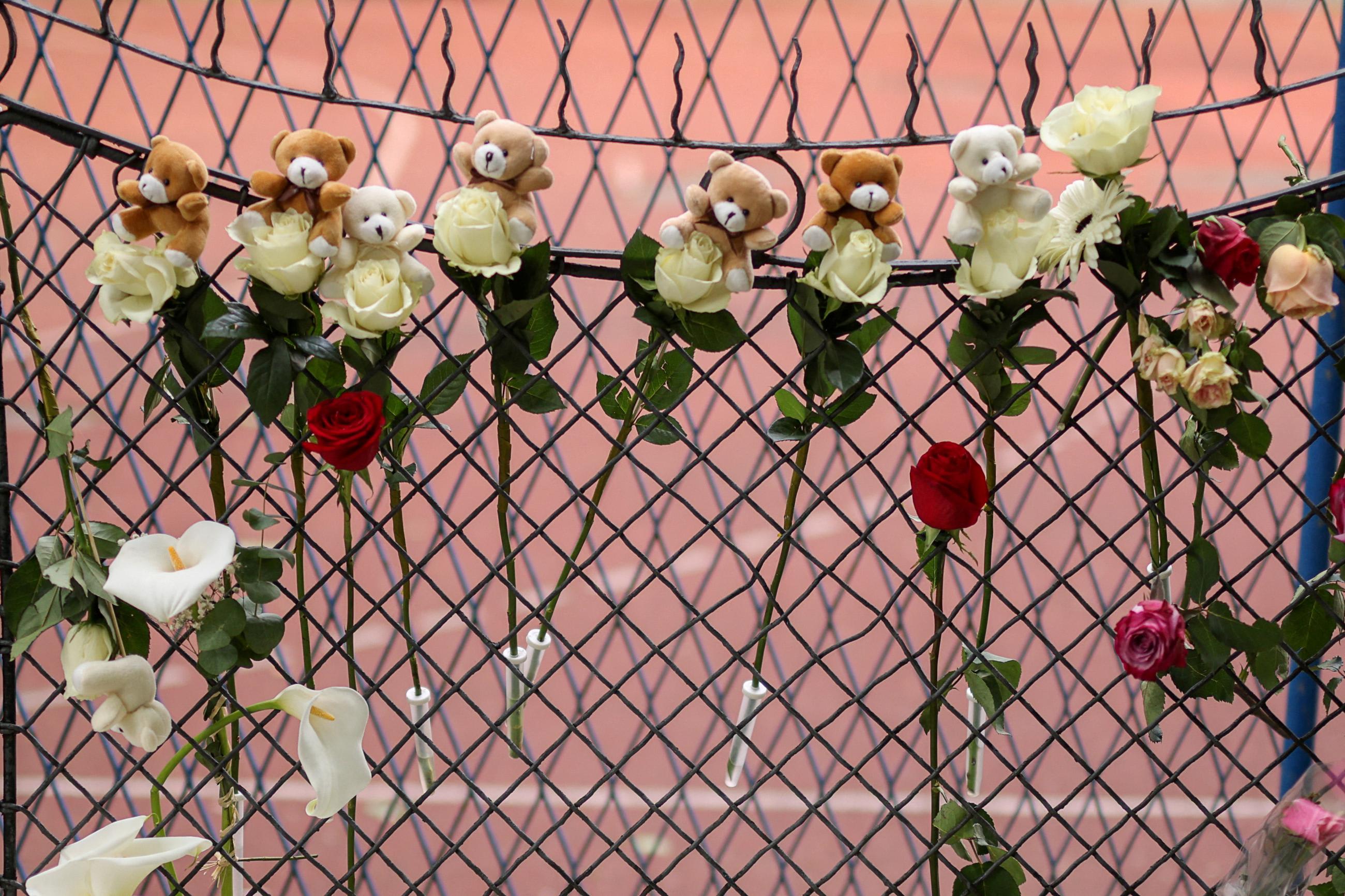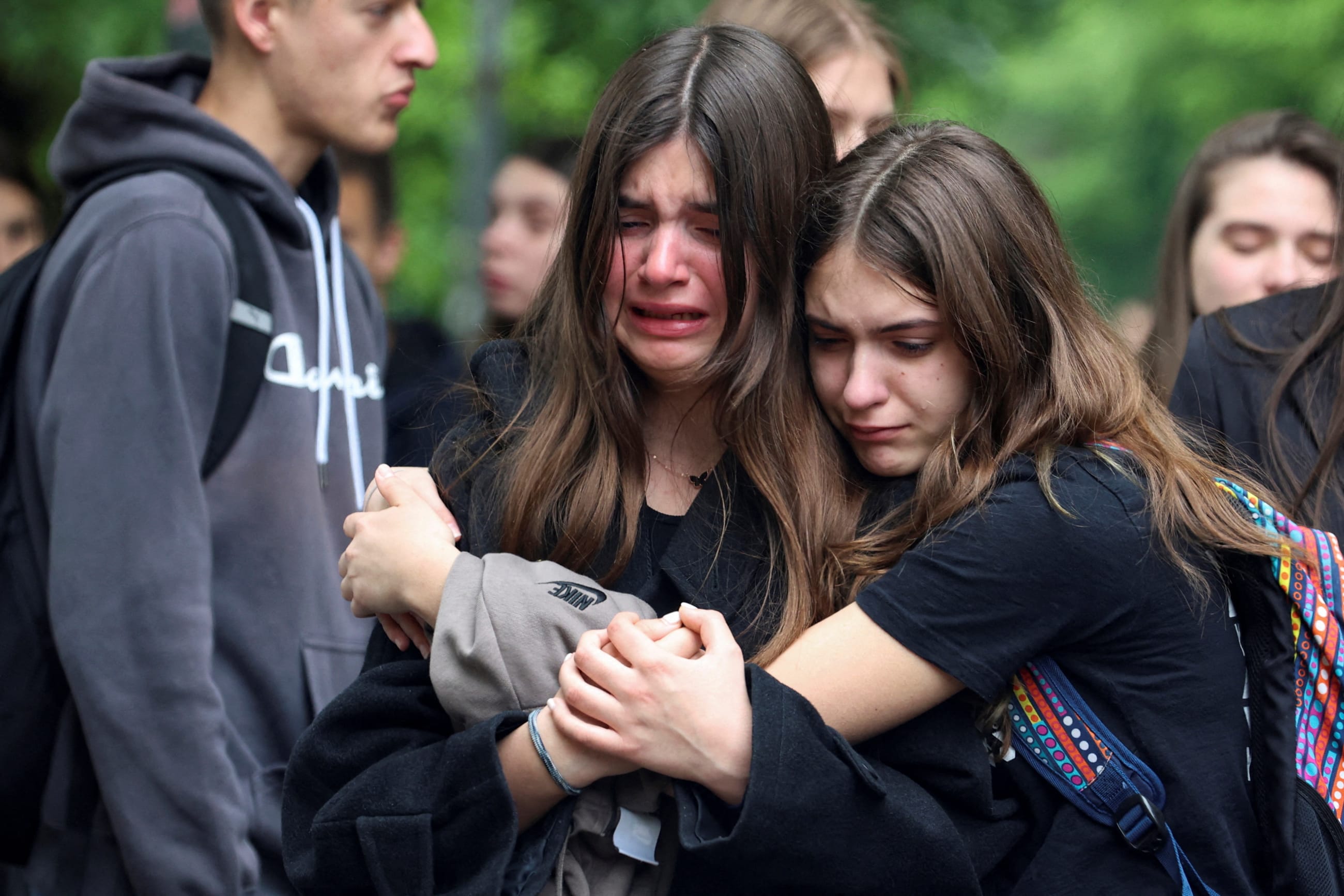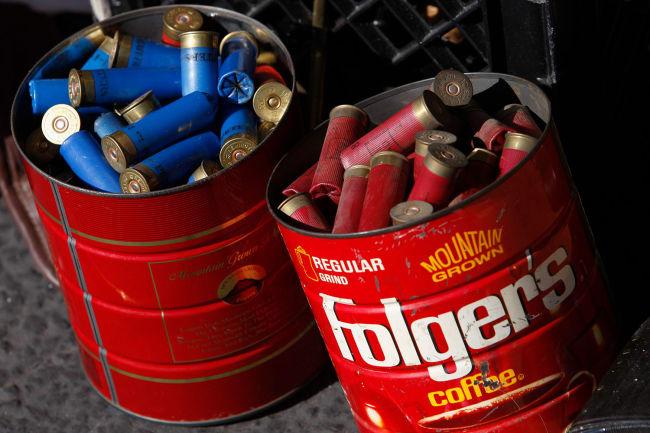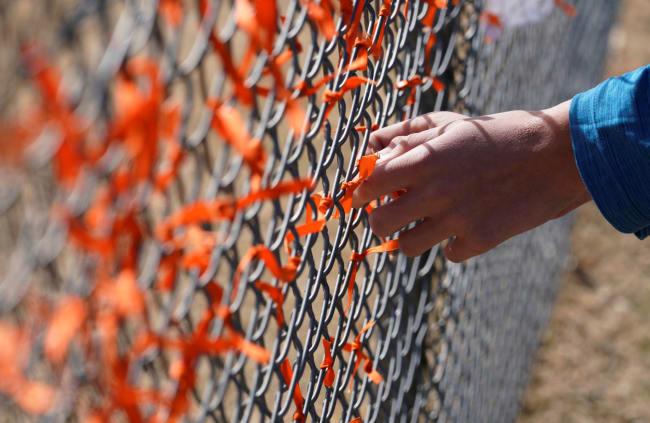As a Serbian college student studying in New York City, I was disturbed by the shootings that regularly made the news in the United States, but the problem seemed impossibly far away from my home country. I was curious enough to enroll in a public policy course about gun violence, but I struggled to comprehend the scale of the problem or my host country's seeming inability to do anything about it. In class, I frequently spoke up with pride about my country where, I explained to my classmates, mass shootings never occur.
On May 3, 2023, my dad called me and shattered that illusion. That morning, a thirteen-year-old had opened fire at one of the most prestigious schools in Serbia's capital of Belgrade, killing nine students and a security guard and wounding six others. The school, Vladislav Ribnikar, was where I had attended from age six to fifteen.
The guns the boy used in the attack belonged to his father, a respected radiologist, who told police he had kept them locked in a safe but suspected that his son had figured out the code. Nonetheless, he'd taken his son to the shooting range, where he'd allowed him to work on his marksmanship. The police found fifty-seven shells at the crime scene, and school staff who witnessed the event said the boy had been shooting one-handed.
Serbia's high prevalence of gun ownership more closely resembles that of the United States than much of Europe.
Mass shootings are nearly unheard of in Serbia, even though its high prevalence of gun ownership more closely resembles that of the United States than much of Europe. Firearms are mainly in the possession of older men, a consequence of the Yugoslav wars in the 1990s, but wielding them against other people is unthinkable: Serbians typically have a strong sense of traditional family values, and children are particularly sacred. Unlike in the United States, in Serbia gun laws are strict, limiting gun ownership to adults with justifiable reasons for acquiring weapons, and requiring them to take training courses and undergo extensive background checks. To the extent that it occurs, firearm crime is predominantly in the context of robberies and organized crime.
I couldn't believe that nine young people had perished in the classroom and hallway where I spent the best part of my childhood. But I was particularly distraught over the death of the security guard Dragan Vlahovic, whom I knew well. Uncle Dragan, as we called him, was a familiar and fond presence, my first hello and my last goodbye each day. He was the person you went to whenever you had a problem or were in trouble. When I felt misunderstood by my teachers, Uncle Dragan was there to comfort me and treat me like his own child. Even six years after I had graduated, I can still vividly recall his hilarious jokes and his honeyed voice. As soon as I learned the time of his funeral, I booked a flight home.
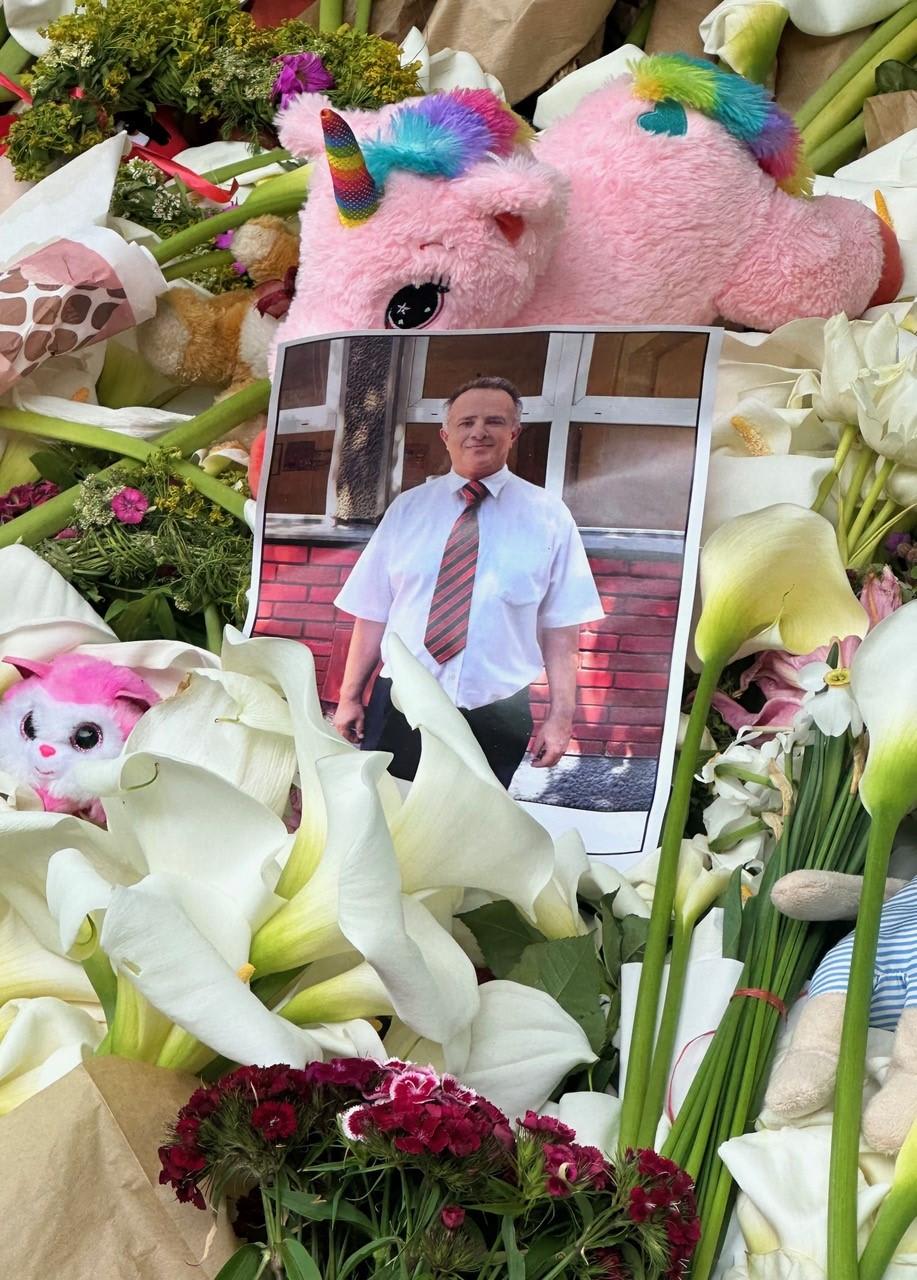
More than two thousand former students and others came to celebrate his life and say goodbye. We lit candles together, held hands, and hugged each other whenever someone began to sob. I didn't know whether I was crying for Uncle Dragan, or for the children who had died, or for all of us who had been affected and whose lives will never be the same. After the funeral, a line of us stood for two hours in front of the school, waiting to sign a "book of grief" in tribute to the victims. While we waited, we exchanged our best reminiscences of Uncle Dragan and of our school days, refusing to think about how memories of the shooting will be forever attached to the school now.
Although the tragedy brought our local community together in solidarity, across the nation it seems to be stoking division and mistrust. The shooting is still front-page news but much of the coverage right after the tragedy seemed exploitative; news outlets broadcast the funerals of the victims, interviewed celebrities about their opinions of the shooting, all the while increasing the number of ads to profit from heightened viewership. Whenever I glanced at the news, I'd find gruesome details of the crime and about the suspect, often with unsubstantiated facts. On social media, people started arguing over whom to blame: the parents of the shooter, bullying, the school, violent movies and video games, the government. Everyone had something to say, yet no one knew anything. In some ways it reminded me of the United States: the spread of misinformation, recriminations that burbled up for political ends.
In the midst of chaos, Serbian President Aleksandar Vucic called for "an almost total disarmament."
In the midst of chaos, Serbian President Aleksandar Vucic called for "an almost total disarmament," which would entail halting the issuance of new gun permits for at least two years, reviewing all existing permits, and inspecting the storage methods of existing gun owners. Urging people in illegal possession of firearms to turn them into authorities, he granted a temporary amnesty and by May 14 authorities had collected 13,300 unregistered weapons. He also proposed mandating that secondary school students undergo biannual drug tests and that special services and teams be established to deal with peer violence. Many of the measures seemed superficial to me, aimed at appealing to voters but unlikely to address the root causes of gun violence.
Meanwhile, people who opposed the government organized a protest as soon as three days of mourning concluded, before all the victims had even been buried. In the center of Belgrade, they stood behind a banner reading "Serbia against violence," demanding the resignation of the members of the council that regulates electronic media, the closure of pro-government media outlets that spread false information, and the end of reality shows that promote violence. The protest quickly devolved, though, into crowds of people shouting for the president to step down. I was disappointed to see my people respond to the tragic shooting by mobilizing against the government rather than by sticking to what should have been a priority: mobilizing against gun violence.
Whether they are frequent in your country or rare, no community ever expects to experience a mass shooting. I could see how, unprepared, we Serbians were incapable of a unified response. For all of my studies, I hadn't been prepared personally, either: for the heartache of losing someone I loved, for the severe impact on my mental well-being, for the ambiguous mix of factors that allowed the tragedy to occur, and for the inadequacy of proposed solutions. Sharing the distress and grief with my classmates helped me immensely, but the consequences are and will continue to roll through my country as a whole, and the disunity only seems to be deepening the wounds.
